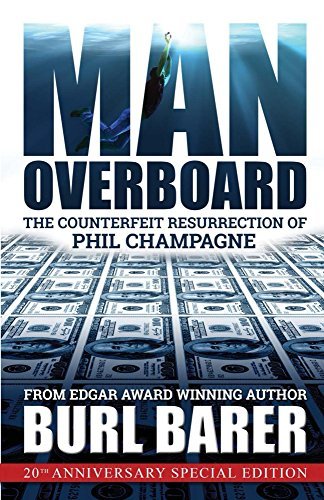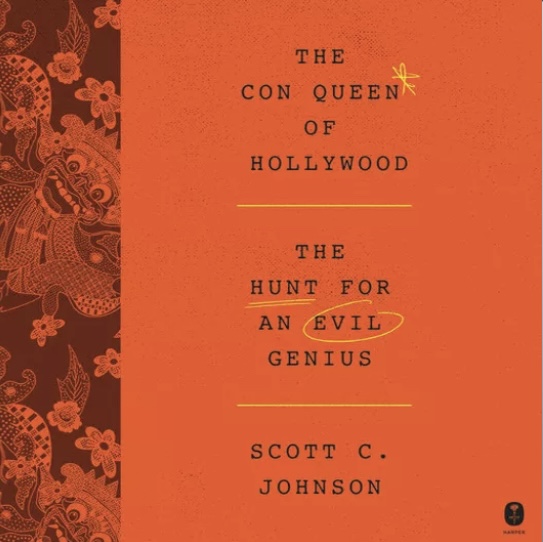
Man Overboard: The Counterfeit Resurrection of Phil Champagne
Book Description
A man dives into the depths of deception, only to resurface as a ghost of his former self. In "Man Overboard: The Counterfeit Resurrection of Phil Champagne," Burl Barer unravels the harrowing tale of a con artist who trades his identity for freedom, leaving a trail of betrayal and lost lives in his wake. As the web of lies tightens, alliances shift, trust is shattered, and the true cost of the counterfeit life emerges. Can anyone rescue Phil from the wreckage of his own making, or has he crafted the perfect escape from reality?
Quick Book Summary
"Man Overboard: The Counterfeit Resurrection of Phil Champagne" by Burl Barer is a gripping true crime account of Phil Champagne, a man who faked his own death to escape the confines of a mundane life and mounting troubles. The narrative delves into Champagne's transformation into a new identity and the elaborate web of deception he spun to support it. As various law enforcement agencies and former friends begin to piece together clues, the story exposes the psychological and emotional toll of living a counterfeit life. The book explores the consequences of Champagne's actions for himself and those around him, revealing the destructiveness of lies and the high price of freedom achieved through betrayal. Barer masterfully unpacks the story's intricacies, leaving readers questioning whether true escape is ever truly possible.
Summary of Key Ideas
Table of Contents
The Psychology of Deception and Reinvention
Phil Champagne’s journey into deception began with a combination of dissatisfaction and desperation. Feeling trapped by financial woes and personal failures, he orchestrated his own disappearance by faking his death in a supposed boating accident. Assuming a new identity, Champagne hoped to evade his problems and begin a fresh existence free from the burdens that plagued his past. This calculated act marked the beginning of a double life and exemplified the extraordinary lengths to which some individuals will go to reinvent themselves.
The Domino Effect of Faked Deaths
Living under his new persona, Champagne became a master of fabrication. He meticulously constructed false documents, forged relationships, and created a convincing narrative that allowed him to blend seamlessly into his new environment. The psychological strain of living a lie became apparent through his constant need to cover his tracks and maintain his stories. Champagne’s tale thus explores not only the external logistics of identity transformation but also the internal conflicts and stresses brought on by perpetual deceit.
Impact on Relationships and Trust
As time passed, the reverberations of Champagne’s disappearance affected far more than just his own existence. His family, friends, and associates were left with lingering questions and unresolved grief, forced to mourn a loss that was neither natural nor deserved. Law enforcement agencies, meanwhile, launched investigations that spanned years, combining forensic evidence with interviews to unravel the mystery behind his apparent death. The emotional and practical chaos caused by Champagne’s actions highlights the widespread fallout from a single act of betrayal.
The Complexities of Investigating Fraud
The book also provides a step-by-step account of the painstaking detective work involved in uncovering fraud. Investigators pored over financial records, insurance claims, and witness testimonies, gradually spotlighting inconsistencies in Champagne’s story. Barer details the slow convergence of different investigative threads, leading to Champagne’s ultimate exposure and the collapse of his fabricated life. This process demonstrates both the ingenuity of investigators and the inherent difficulties in pursuing elusive con artists.
The Cost of Freedom through Betrayal
By the story’s end, the unvarnished cost of Champagne’s escape becomes clear. Although he briefly tasted the freedom of a new existence, the web of lies eventually unraveled, catching up with him in the form of legal consequences and shattered relationships. Barer’s narrative closes with a reflection on the personal and communal devastation wrought by such elaborate deceit, underscoring the futility of seeking salvation through subterfuge and the inevitable reckoning that follows betrayal.
Download This Summary
Get a free PDF of this summary instantly — no email required.





